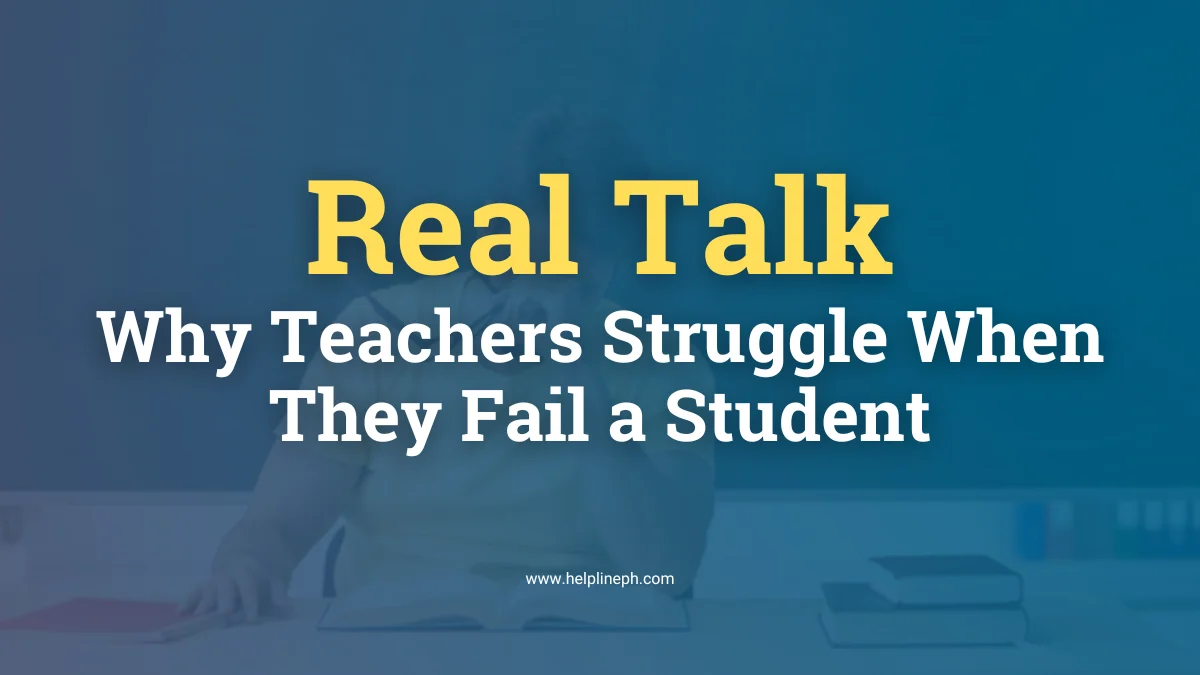When a Teacher Fails a Student: The Teacher Still Suffers
When a teacher fails a student, many people think the work ends there. But in real life, the teacher ends up doing even more. Even if the student doesn’t care or doesn’t try, the teacher is still the one who gets the blame.
As a public school teacher, I’ve seen this many times. I want my students to learn and succeed. But what if some of them don’t want to help themselves? It feels like we’re caught between the school system and high expectations from parents.
Here are the common things that happen when a teacher fails a student:
1. The Teacher Must Handle Remediation
If a student fails, the teacher is the one who needs to help them catch up. This is called student remediation. That means more work for the teacher — like giving extra lessons, making new quizzes, or helping after class.
And guess what? There’s no extra pay for this extra work. So the teacher ends up working more for free.
2. You Can’t Unenroll a Student Easily
Once a student is officially enrolled in the school’s system, the teacher cannot just remove them. Even if the student doesn’t attend classes anymore, they are still counted.
Because of this, the teacher and school head will do everything to make that student pass — even if they didn’t really learn or do the work.
3. The Principal Gets Angry at the Teacher
If students fail, the principal usually asks the teacher first: “What did you do to help the student?” Even if the teacher already tried their best — gave extra lessons, visited the student’s home, sent letters to parents — it’s still not enough.
Even if the student doesn’t submit work or fails the tests, teachers are often told, “You still need to pass the child.”
4. The School Also Looks Bad
It’s not only the teacher who suffers. When many students fail or drop out, the school principal also gets embarrassed during school meetings with higher officials.
Too many failed students make it look like the school isn’t doing its job. So sometimes, teachers are told to pass students — even when they don’t deserve it — just to make the school’s numbers look better.
The Bigger Problem: Mass Promotion
This all happens because of something called mass promotion. It’s not an official rule, but it feels like teachers are expected to pass everyone — even those who don’t learn enough.
Why? Because there are too many students, not enough teachers, and a lot of pressure from the top. That’s why even students who don’t meet the learning standards are pushed to the next grade level.
And when we try to stand firm and give a failing grade, we’re the ones blamed.
My Personal Experience
I had a student who didn’t come to class for almost the whole quarter. I still gave extra lessons, visited their house, and contacted their parents. But in the end, I was told, “You’re still responsible for that student.”
It’s hard to hear that when you’ve already done everything. Sometimes, it feels like we care more about the students than they care about themselves.
Is It Always the Teacher’s Fault?
Not all students fail because of the teacher. Some students have personal problems, mental health issues, or just don’t want to learn. But in the end, the blame still goes to the teacher.
We want students to succeed. But real learning takes effort from both the teacher and the student. If only one side is trying, it’s never going to work.
Frequently Asked Questions (FAQs)
What is remediation?
Remediation is extra help given to students who are failing, like tutoring, extra lessons, or practice worksheets.
Why can’t students be easily removed from the school system?
Once a student is registered, they are counted in the official school records. Removing them is not allowed unless there’s a valid reason.
Why do teachers still pass students who don’t try?
Because of pressure from principals and school officials who want high passing rates.
What can be done to fix this?
There needs to be better support for both teachers and students — more counselors, realistic expectations, and a system that values real learning over just passing.






